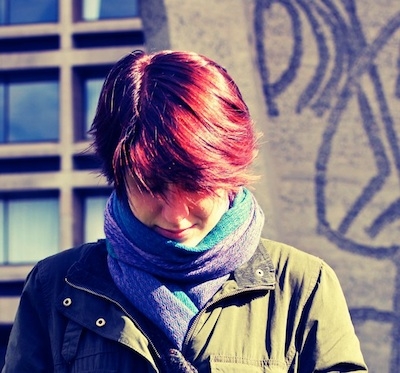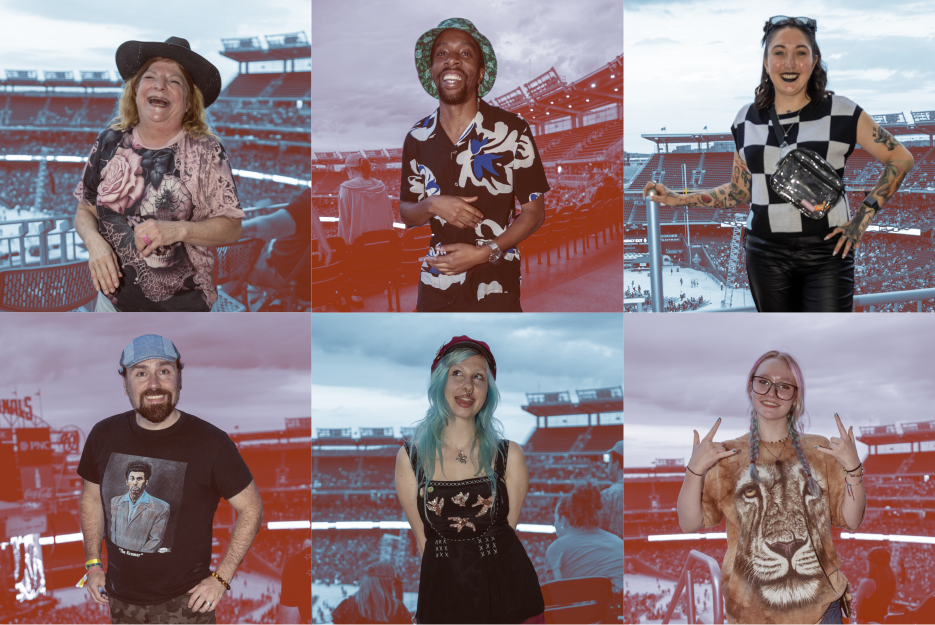
It’s hard to believe Markéta Irglová was just 18 in 2006 when she appeared in Once, the Dublin-set musical that launched her career, and that of Irish singer-songwriter Glen Hansard, into the stratosphere. The Czech musician, now 23, has somehow already managed to collect an Academy Award, make history with her acceptance speech, and release a couple of hit records with the Swell Season, her band with Hansard. Irglová’s film career isn’t over, either. In fact, she’s now the subject of one: The Swell Season, a black-and-white documentary that focuses on the pair’s real musical and romantic relationship (it was the opening night feature at Silverdocs last year and is currently screening at West End Cinema). However, it’s Irglová’s most important milestone to date that brings here to the 9:30 Club tonight: her debut record as a solo artist, Anar. Released in October, the stunning, piano-driven Anar (the Persian word for “pomegranate”) follows Irglová finding her own voice and confidence among influences including Joni Mitchell, Otis Redding, and traditional Iranian folk music. We caught up with Irglová last week while she was hiding from the rain in Portland, Oregon, to talk songwriting, collaborating, and forbidden fruit.
I didn’t realize you were only 18 when Once was shot. How early did you start playing music?
I started taking classes when I was seven years old. I guess I didn’t play before that, but I used to sing. I’ve just loved music ever since I was born. I used to sing a lot, so that’s why my parents gave me the opportunity to take classes.
Was the piano your first instrument?
Yes, I took piano first. My father really wanted me to play guitar, so we went to the music school to check, but they didn’t do classical guitar lessons. So I took piano because that’s the instrument my mom always wanted to play. I ended up playing both in the end, but the piano was definitely my first instrument. I feel more comfortable on that than on guitar.
Do you write all of your songs on the piano?
I used to write most of my songs on the guitar, but this record was all written on the piano, and I haven’t really touched the guitar since. I’m just really enjoying the piano more at the moment.
Is there a difference in approach to the type of songs you wrote for Anar as opposed to for the Swell Season? Is the writing process different?
I’m a bit more committed to the idea of actually being a working songwriter and musician. I was more disciplined about sitting at the piano every day and having a routine about it—just providing the circumstances for the music to come through and not necessarily trying to force it. Before, I was really comfortable with the idea of Glen writing most of the material. But while living in New York and being out touring, I made a point of going to the piano every day and finding something that resonated, and that’s basically what the whole record was: just going and keeping at it. That’s different, I think. Also, when I knew the songs I was writing would be sung by the two of us, I would be thinking of them from that perspective, balancing Glen’s passionate dynamic with the more gentle aspects of the music from me. My part is always to create harmonious sounds, and I think this record shows more of that. I’m always drawn to having lots of harmonies in my songs. I used to sing in a choir, and I enjoy the sound of voices coming together. I also think I have more confidence as a songwriter now, just knowing that it’s really important that I like it and that I have my own approval before seeking approval from someone else, even from Glen. I have to believe what I’m doing before anyone else can believe it.
Did you have any collaborators on Anar?
I wrote one of the songs on the record with Rob Bochnik. We were on tour with the Swell Season last year and passing through Berlin, and Rob likes to warm up before a show with the acoustic guitar. It’s always really beautiful, and he was playing this melody that caught my ear. I said, “Rob, what’s that?” And he said, “It’s nothing.” I said, “No, that’s really beautiful.” And he told me I was welcome to have it. When I went home I just kept humming the melody, and I sat down at the piano and this whole song came out of it. He has collaboration credit because he wrote the chorus melody. And then one of the songs is a traditional Iranian song. Otherwise, all of the songs are mine.
You also established a partnership with Aida Shahghasemi at Zora Space in Brooklyn.
Yes, she’s from Iran originally and has been living in the States for some time now, 10 or 11 years. We started playing together after I moved to New York. She’s an incredible drummer and vocalist. The natural rhythms she creates really complement my classical training. It’s been really interesting to collaborate with her musically. We wrote one song together that will be on the next record. In the future, I can see us collaborating more together.
I understand Anar is named after the pomegranate painting that adorns its cover. What drew you to that piece?
I always feel it’s some kind of a sign when something happens three times or more. I start paying attention to it to try to figure out what it means in relation to what’s going on with my life. After I moved to New York, I kept seeing pomegranates, and I had never seen one before. I had never eaten one or even seen it in a shop in the Czech Republic. So I started reading about it and trying to figure out why I kept seeing it. I realized it’s a very symbolic fruit in all these religions across the world. It might have been the forbidden fruit in the Garden of Eden, and it’s in all this architecture as a symbol of fertility and growth. It’s a very strong feminine symbol. I liked it as a summation of the record, as the record feel very feminine to me. It was also a very fertile and creative time in my life for having written all these songs in a short period of time. That’s what drew me to the painting in the gallery. The aesthetic is also very similar to the painting style of Gustav Klimt, who is an Austrian painter I like very much. He also used gold leaf and strong vibrant colors. I’m actually in collaboration with the artist Nahid Hagigat for the next record. She’s doing a painting for the cover.
“Go Back” is a real standout on the album—it’s such a soulful number. Where did the inspiration for all that brass instrumentation come from?
At the time, I was listening to a lot of Otis Redding and Aretha Franklin and was discovering soul music. What was really inspiring to me was that it seems like very self-empowered music. The songs acknowledge the difficulties in life and recognizes that you have the power to rise above it and make the most of it, as opposed to being down on yourself and providing no light at the end of the tunnel. The end of “Go Back” is very much like that with that crossroads. The brass in my mind made it a little bit of a soul song.
This is your first tour as a solo artist. How has it been going?
It’s been going really well. I’m touring with Aida, my husband, Tim Iseler who produced the record, and my friend Rob who’s been playing with the Swell Season. There’s a really nice dynamic. It feels very much like a family atmosphere, and all the people at the gigs have been really open and warm and beautiful. I feel really happy about the way it’s been going.
You’re singing on Glen Hansard’s new solo record. Why did you both decide to make solo records rather than another Swell Season album?
I knew we were going to be taking time off, and I was facing a decision: Either I’m not going to have music in my life until Glen is ready to continue, or I can create the circumstances in which I can continue by myself. So I thought I’d go to the studio and make an EP and put it out on a small label. I didn’t really have much ambition with it in the beginning, but by the time I went to the studio I realized I had enough music to make a full album. It was a lot of baby steps leading towards the new record. Glen, as far as making his new record, he’s really excited. He’s also been asked to do all these different collaborations, and when we were touring he was too busy. I think he’s really excited to now take on all those offers. He’s just been doing that: going into the studio in New York and collaborating with all these musicians that he loves. But whenever he feels like he wants to make a Swell Season record, that’s what we’ll do. And I’m excited about that, too. I don’t know when that will be, but I look forward to it.
Once premieres as an off-Broadway play in December. Were you involved at all in that adaptation and production?
I have no
t been involved besides just approving it to take place. But I saw it about ten days ago, and I was really impressed. I think it’s really tastefully done and simple. It’s not this big production. The actors, who are simultaneously the musicians, are doing a great job. They’re doing a little bit of dancing, but it’s very tasteful and organic. Everyone seems to be really excited to do it. I was actually surprised; I was going into it with nothing but excitement and curiosity to see another person’s take on what we created, and it made me really proud. I was thrilled with it.
Markéta Irglová performs at the 9:30 Club tonight at 7 PM. Tickets ($25) are available through the venue’s Web site.















